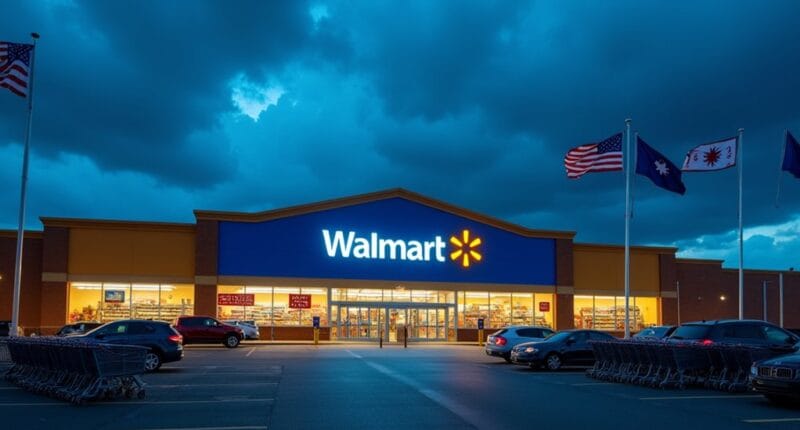Former Walmart CEO Bill Simon’s dismissal of tariff concerns clashes with current leadership’s stance. While Doug McMillon warns of thin margins unable to absorb costs, Simon insists the retail giant’s scale can handle the hit. Reality check: Walmart’s already shifting to domestic suppliers and implementing strategic price hikes on non-essentials. With two-thirds of products sourced from U.S. manufacturers, the truth about Walmart’s tariff resilience lies somewhere in between the conflicting executive views.

While President Trump insists Walmart should simply “eat the tariffs,” the retail giant’s leadership isn’t swallowing that suggestion. CEO Doug McMillon has made it crystal clear – the company’s razor-thin profit margins just can’t absorb all those extra costs.
Walmart’s CEO pushes back on Trump’s tariff demands, stating the retail giant’s slim margins cannot handle the additional burden.
And let’s be real, when Walmart sneezes, American consumers catch a cold.
The retail behemoth isn’t taking this lying down, though. They’ve got a game plan that’s actually pretty clever. Two-thirds of their products already come from U.S. suppliers – not too shabby for a company often criticized for its reliance on Chinese imports.
They’re doubling down on domestic sourcing through their “Open Call” events, basically speed dating for American manufacturers who want their products on Walmart’s shelves.
But here’s the kicker – even with all this American-made maneuvering, some price hikes are inevitable. Walmart’s strategy? They’re playing it smart, protecting the essentials. Your groceries might be safe, but that cheap lawn furniture you’ve been eyeing? Maybe not so much.
They’re fundamentally performing retail triage, deciding which items can take the hit without sending customers into a panic.
The whole situation has turned into quite the political football. Trump’s public call-out for Walmart to absorb the tariffs shows a fundamental misunderstanding of retail economics.
Sure, Walmart’s profitable, but they’re not running a charity. Those narrow margins mean every penny counts.
For American consumers, especially those living paycheck to paycheck, this isn’t just corporate drama – it’s kitchen table economics.
Walmart’s role as America’s price setter means their decisions ripple through the entire retail ecosystem. While they’re working to minimize the impact through aggressive supply chain management and increased domestic sourcing, the reality is clear: someone’s going to end up paying for these tariffs, and it probably won’t be the retailers.
Like planning for retirement savings goals, consumers may need to adjust their budgets and shopping habits to accommodate these inevitable price increases.





